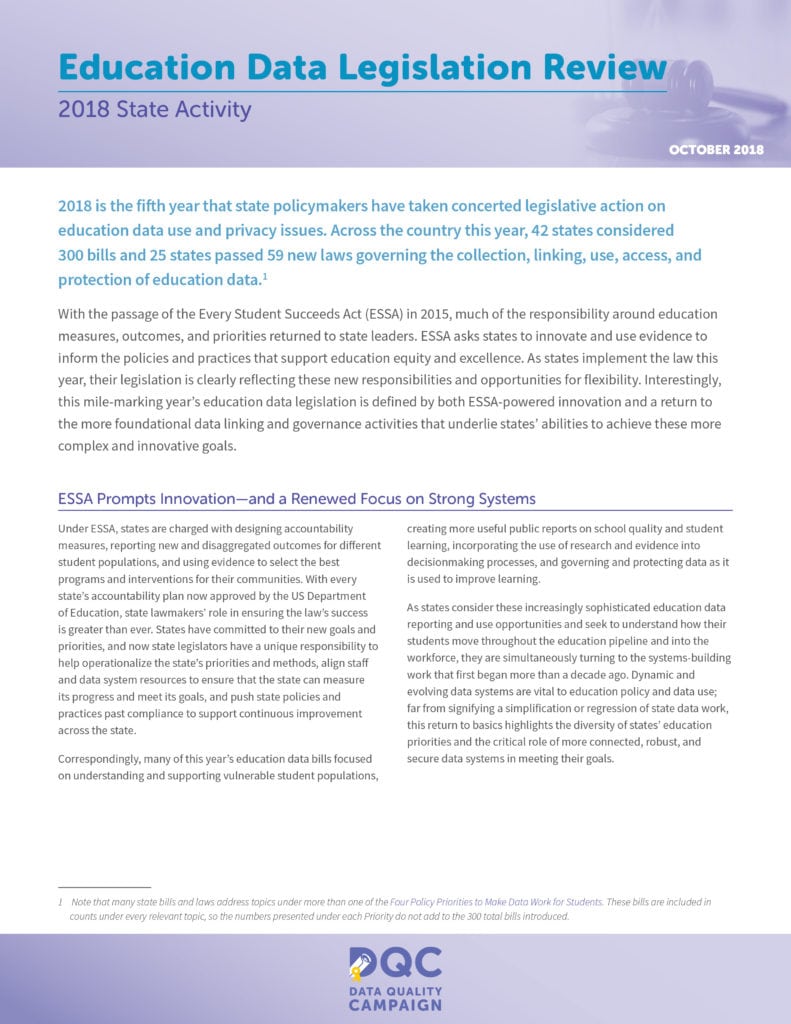 Each year, the Data Quality Campaign tracks and analyzes legislation from all fifty states to gauge how leaders are looking to put data to work for students. While all stakeholders have a role in using data to support students, policymakers are uniquely positioned to legislate how this information is collected, linked, and protected to meet states’ education goals.
Each year, the Data Quality Campaign tracks and analyzes legislation from all fifty states to gauge how leaders are looking to put data to work for students. While all stakeholders have a role in using data to support students, policymakers are uniquely positioned to legislate how this information is collected, linked, and protected to meet states’ education goals.
Our review of the 2018 legislative session found states are eager to use data to answer complex questions around how different students are being served and what leaders can do to improve the outcomes for all students. This summary and analysis highlights key trends and innovative bills that policymakers, advocates, and the public need to know about, including:
- 24 states passed 38 new laws on secure data linkages to help leaders answer complex questions about how different students move through the education pipeline and beyond.
- 18 states passed 27 new laws on training, support, and resources for districts to ensure data use is possible at the local level and a driver in decisionmaking.
- 17 states passed 22 new laws on publicly reporting data to ensure the information captured in states’ report cards are meaningful and useful to leaders, families, and communities.
- 13 states passed 22 new laws that govern the protection of education data. With effective privacy policies in place, states are now refining existing laws to prevent unintended consequences and better serve students with safeguarded data.
With the passage of the Every Student Succeeds Act (ESSA) in 2015, much of the responsibility around education measures, outcomes, and priorities returned to state leaders. Policymakers can go beyond compliance and ensure data is used to meet and exceed the education goals outlined in their states’ ESSA plans by using DQC’s Four Policy Priorities to Make Data Work for Students. With this framework in hand, states can transform the role of data in education and make student success a reality.

